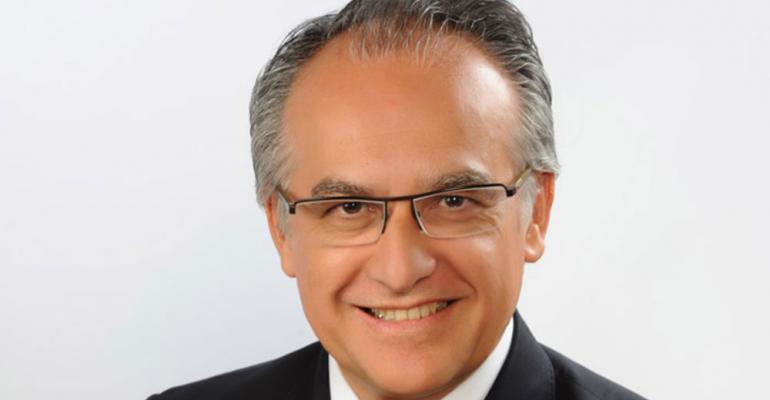BRUSSELS – Whatever happens in Europe, an automobile manufacturing base always will be needed on the continent, says Erik Jonnaert, the new secretary-general of ACEA, the European automobile manufacturers association.
“I don’t think there should be any fear that we will evolve towards a situation where all manufacturing would move out of Europe,” despite historically low sales and increased competition from Asia, Jonnaert tells WardsAuto.
Even in hard economic times, people still will need cars to take them from one place to another or to be their status symbol, according to Jonnaert. Businesses will need trucks and vans to transport goods across Europe, given that most freight is transported on the continent by road, he adds.
This is one of the reasons he believes the European market will not focus only on premium cars as its unique selling proposition. “We are following the needs of our consumers,” Jonnaert says: “There are people out there with different tastes, different desires, different needs, people with families, single people.”
The diversity of Europe’s automobile-manufacturing base will continue to reflect the needs of European society, according to the ACEA executive.
With sales picking up in Europe in the last months of 2013, Jonnaert has reason to be optimistic. “We are really hopeful that for (2014) we are going to see a continuing positive trend clearly in line with the expected GDP growth in Europe,” he says.
But the growth, and hence increased demand for automobiles, still will come mostly from Asia and especially from countries such as China, India, Indonesia and Thailand, according to Jonnaert. This is why he praises his predecessor Ivan Hodac who, in 12 years at the helm of the ACEA opened satellite offices in Beijing, Tokyo and Seoul.
“That was very forward-looking,” Jonnaert says, noting the ACEA’s Beijing office is celebrating its 10th anniversary in 2014. “We are probably the only European industry with such an office,” he says.
“(Hodac) has also been a champion of the transatlantic business dialogue, which we are currently benefiting from now that we started discussions for a free-trade agreement with the U.S.”
In January the European Commission announced creation of an advisory group to give feedback to its negotiators in the Transatlantic Trade & Investment Partnership talks. Hodac represents manufacturing interests as one of the group’s 14 members.
The FTA agreement is one of the areas where European automakers have called on policymakers to deliver growth by ensuring the negotiations proceed “in a positive way for Europe,” Jonnaert says, adding business interests on both sides of the Atlantic strongly support the trade deal.
With the EU and the U.S. representing a third of the global automotive market, a successful FTA “could have an enormous impact on our contribution to world sales and world production for the automotive sector,” he says, but cautions making the agreement a reality will be neither easy nor fast. “We shouldn’t expect and dream for solutions even by the end of this calendar year.”
That is because the U.S. and the EU will have to agree not only to eliminate import tariffs, which Jonnaert sees as the easy part of the agreement, but also to look at regulatory convergence and mutual recognition of standards. This is where the FTA could benefit European and U.S. automakers the most, as it would eliminate the costs of duplicate testing or ensuring similar safety benchmarks, for example.
Some other countries already informally recognize the equivalence of EU and U.S. automotive standards, according to the ACEA executive. “When you look at markets outside Europe and the U.S. which do not have any production –for example, South Africa, where cars are imported from the U.S. and from Europe – both are considered as equivalent in terms of environmental quality and safety,” he says.
A new round of trade-partnership negotiations is scheduled for March 10-14 in Brussels. At the end of the month, the EU and Japan will review the status of their negotiations for a separate FTA, a deal the ACEA has been far cooler about.
“We should be realistic and take into account the economic realities on both sides,” Jonnaert says, noting sales have been declining in Japan. “You could also say that Europe has had its fair share of difficulties, but at least we see early signs of recovery.
“We are not eager to give up the tariffs we currently have in place if we do not see tangible progress on regulatory convergence which would help to eliminate these non-tariff barriers that exist for our industry in Japan,” he says.
According to Jonnaert, the EU imposes an import duty of 10% on Japanese cars. And while Japan does not have a reciprocal measure, its regulations make it hard for European automakers to produce or import cars into the country.
“The discussions continue to be difficult,” the ACEA chief says, conceding negotiations launched in March 2013 have not achieved “the progress we are asking for.”





